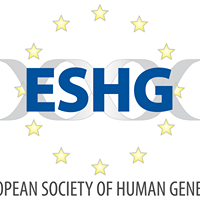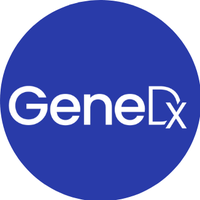GeneDx and Fabric Genomics: A New Era in Genomic Medicine
April 18, 2025, 5:28 am

Location: Austria, Vienna
Employees: 11-50
Founded date: 1967
In the fast-paced world of healthcare, change is the only constant. The recent acquisition of Fabric Genomics by GeneDx marks a significant shift in the landscape of genomic medicine. This merger is not just a business deal; it’s a bold step toward a future where genomic insights are as accessible as a smartphone app.
GeneDx, based in Stamford, Connecticut, has long been a leader in genomic health. They specialize in transforming complex genetic data into actionable health insights. Their mission? To improve health outcomes through the power of genomics. Now, with the acquisition of Fabric Genomics, they are poised to take this mission to new heights.
Fabric Genomics, hailing from Oakland, California, is a pioneer in AI-powered genomic interpretation. Their technology has already made waves in clinical labs and hospital systems, providing rapid and accurate genomic insights. This acquisition is like merging two powerful rivers into one, creating a mighty force that can reshape the landscape of healthcare.
The deal, valued at up to $51 million, hinges on the achievement of certain milestones. This financial commitment underscores the confidence both companies have in the potential of their combined capabilities. The acquisition is expected to close in the second quarter of 2025, setting the stage for a new chapter in genomic medicine.
At the heart of this merger is the concept of decentralized testing with centralized intelligence. Imagine a world where genetic testing can be done in local hospitals, with results interpreted by advanced AI algorithms. This model breaks down geographical barriers, allowing healthcare providers worldwide to access cutting-edge genomic insights. It’s like having a world-class expert available at every corner of the globe.
The implications of this are profound. In the neonatal intensive care unit (NICU), for instance, rapid genomic testing can lead to quicker diagnoses of rare genetic disorders. This means faster treatment decisions, ultimately saving lives. The ability to perform on-site sequencing and interpretation transforms the traditional model of healthcare delivery. It’s a game-changer.
Moreover, the integration of Fabric Genomics’ AI-driven platform with GeneDx’s extensive rare disease data set creates a robust ecosystem for genomic interpretation. This combination enhances the speed and accuracy of diagnoses, which is crucial in a field where time is often of the essence. The diagnostic odyssey, a term used to describe the long and often frustrating journey to find answers for patients with unexplained symptoms, could become a thing of the past.
As healthcare systems grapple with rising costs, the efficiency brought by this merger could lead to significant savings. Faster diagnoses mean fewer unnecessary tests and treatments. This not only benefits patients but also alleviates the financial burden on healthcare providers. It’s a win-win scenario.
The potential applications of this technology extend beyond hereditary diseases. Oncology, for example, stands to gain immensely from the advanced genomic insights provided by this partnership. Personalized medicine, where treatments are tailored to the individual’s genetic makeup, is the future of cancer care. With the combined strengths of GeneDx and Fabric Genomics, this future is within reach.
The acquisition also highlights a broader trend in healthcare: the increasing reliance on artificial intelligence. As AI continues to evolve, its role in genomic medicine will only grow. The ability to analyze vast amounts of genetic data quickly and accurately is a powerful tool in the hands of clinicians. It’s like having a supercomputer at their disposal, capable of sifting through mountains of data to find the most relevant insights.
However, with great power comes great responsibility. The ethical implications of genomic data usage must be carefully considered. As more healthcare providers gain access to genomic insights, ensuring patient privacy and data security will be paramount. Transparency in how this data is used will be crucial in maintaining trust between patients and healthcare providers.
In conclusion, the acquisition of Fabric Genomics by GeneDx is a landmark event in the field of genomic medicine. It represents a shift toward a more decentralized, accessible model of healthcare. With the integration of AI-powered interpretation and extensive genomic data, the future looks bright. Faster diagnoses, improved patient outcomes, and reduced costs are just the beginning. As these two companies join forces, they are not just changing the game; they are rewriting the rules. The promise of genomic medicine is becoming a reality, and the world is watching.
GeneDx, based in Stamford, Connecticut, has long been a leader in genomic health. They specialize in transforming complex genetic data into actionable health insights. Their mission? To improve health outcomes through the power of genomics. Now, with the acquisition of Fabric Genomics, they are poised to take this mission to new heights.
Fabric Genomics, hailing from Oakland, California, is a pioneer in AI-powered genomic interpretation. Their technology has already made waves in clinical labs and hospital systems, providing rapid and accurate genomic insights. This acquisition is like merging two powerful rivers into one, creating a mighty force that can reshape the landscape of healthcare.
The deal, valued at up to $51 million, hinges on the achievement of certain milestones. This financial commitment underscores the confidence both companies have in the potential of their combined capabilities. The acquisition is expected to close in the second quarter of 2025, setting the stage for a new chapter in genomic medicine.
At the heart of this merger is the concept of decentralized testing with centralized intelligence. Imagine a world where genetic testing can be done in local hospitals, with results interpreted by advanced AI algorithms. This model breaks down geographical barriers, allowing healthcare providers worldwide to access cutting-edge genomic insights. It’s like having a world-class expert available at every corner of the globe.
The implications of this are profound. In the neonatal intensive care unit (NICU), for instance, rapid genomic testing can lead to quicker diagnoses of rare genetic disorders. This means faster treatment decisions, ultimately saving lives. The ability to perform on-site sequencing and interpretation transforms the traditional model of healthcare delivery. It’s a game-changer.
Moreover, the integration of Fabric Genomics’ AI-driven platform with GeneDx’s extensive rare disease data set creates a robust ecosystem for genomic interpretation. This combination enhances the speed and accuracy of diagnoses, which is crucial in a field where time is often of the essence. The diagnostic odyssey, a term used to describe the long and often frustrating journey to find answers for patients with unexplained symptoms, could become a thing of the past.
As healthcare systems grapple with rising costs, the efficiency brought by this merger could lead to significant savings. Faster diagnoses mean fewer unnecessary tests and treatments. This not only benefits patients but also alleviates the financial burden on healthcare providers. It’s a win-win scenario.
The potential applications of this technology extend beyond hereditary diseases. Oncology, for example, stands to gain immensely from the advanced genomic insights provided by this partnership. Personalized medicine, where treatments are tailored to the individual’s genetic makeup, is the future of cancer care. With the combined strengths of GeneDx and Fabric Genomics, this future is within reach.
The acquisition also highlights a broader trend in healthcare: the increasing reliance on artificial intelligence. As AI continues to evolve, its role in genomic medicine will only grow. The ability to analyze vast amounts of genetic data quickly and accurately is a powerful tool in the hands of clinicians. It’s like having a supercomputer at their disposal, capable of sifting through mountains of data to find the most relevant insights.
However, with great power comes great responsibility. The ethical implications of genomic data usage must be carefully considered. As more healthcare providers gain access to genomic insights, ensuring patient privacy and data security will be paramount. Transparency in how this data is used will be crucial in maintaining trust between patients and healthcare providers.
In conclusion, the acquisition of Fabric Genomics by GeneDx is a landmark event in the field of genomic medicine. It represents a shift toward a more decentralized, accessible model of healthcare. With the integration of AI-powered interpretation and extensive genomic data, the future looks bright. Faster diagnoses, improved patient outcomes, and reduced costs are just the beginning. As these two companies join forces, they are not just changing the game; they are rewriting the rules. The promise of genomic medicine is becoming a reality, and the world is watching.
